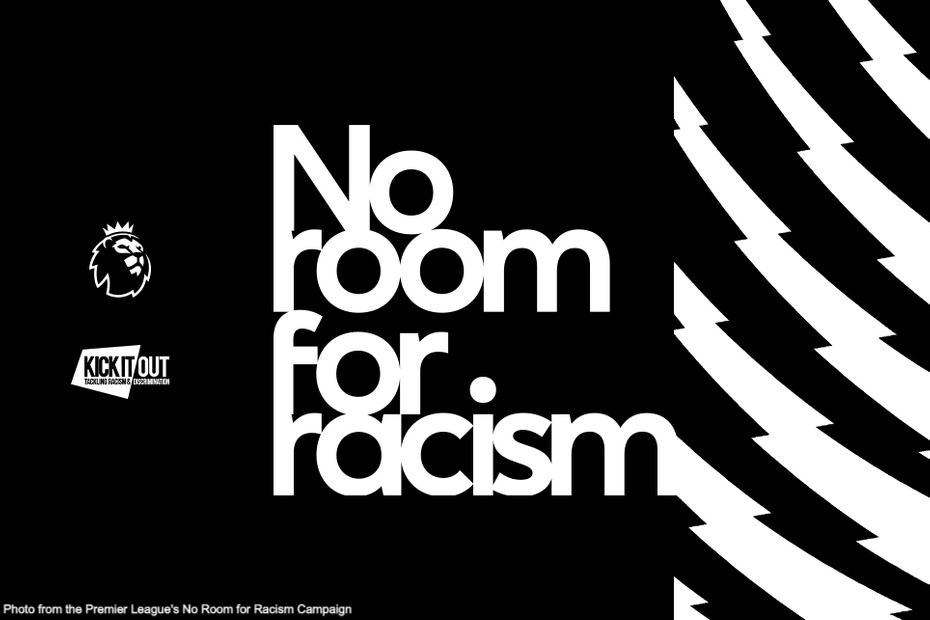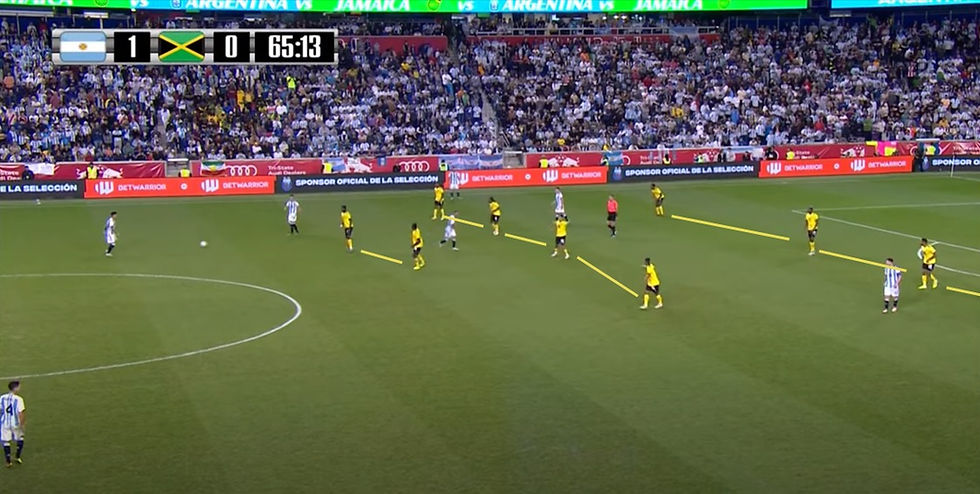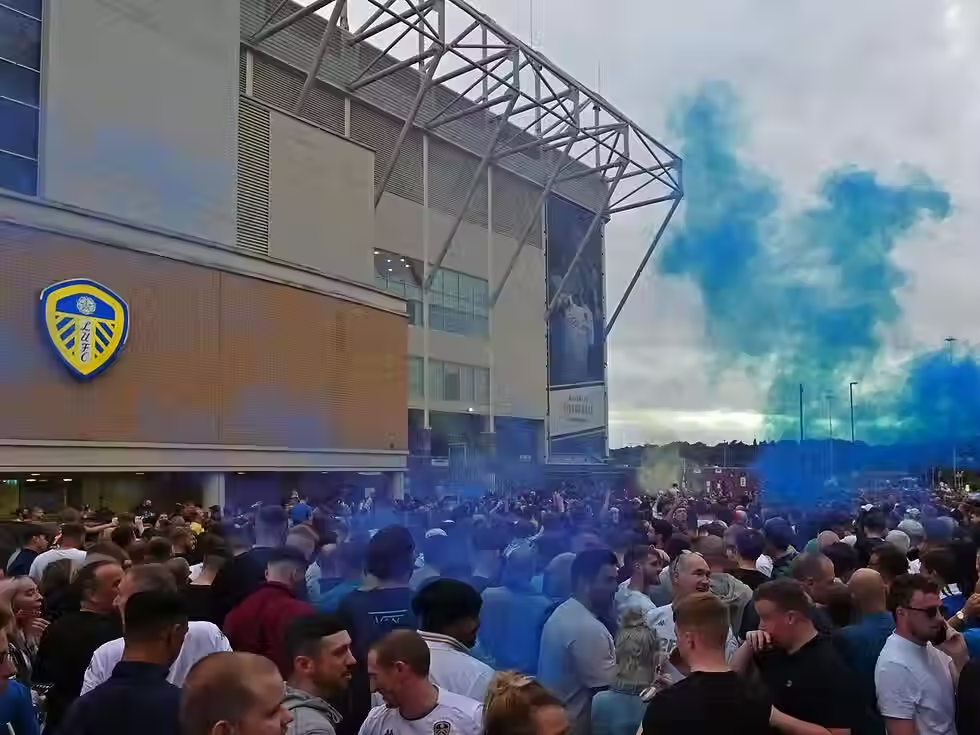Racism in Football
- All Angles Football -
- Jun 3, 2020
- 8 min read

Football, and sport in general, consumes the day to day lives of many individuals all over the world. Whether we watch sport, speak about it, or write about it, it’s a part of the day to day lives of many individuals and groups. With that said, it is a reflection of society. What happens on the field and even off the field reflects what and how people think in various countries across the world, it reflects their ideas, their cultures and as mentioned, society overall. It is important to note that because of this, racism has and continues to unacceptably exist in football both on and off the field. Many are blind to this, but football and sport overall is a platform that needs to be used. As a result of its popularity and meaning to society overall, sport has to be used as a means of taking action, supporting and proving that Black Lives Matter.
The History of Racism Against Black People in Football
Racism of course dates back VERY far into history, not only in football. In football however, in England, racism became a widespread issue in the 1970s. Many players were sons of immigrants to Great Britain after World War II. These players were had monkey noises and gestures aimed at them and bananas thrown at them during games insensitively. Although many gifted black players who made impacts on their teams successfully had emerged in the 70s and 80s such as Viv Anderson and John Barnes, abuse was present for these black players and many others. Hooliganism, aggression and violence were very much present in stadiums and this combined with stadium tragedies such as Hillsborough saw a decline for English football until the 1990s when the Premier League was formed. This hooliganism combined with an influx of black players who were sons of immigrants, saw racism become widespread in stadiums. It was harder for black players to get a spot in a team and there were very few black players in English football during the 1970s. Part of this was because whites made negative stereotypes such as saying that they are unable to read the game.
Putting football aside, the same issue was present in American sports much earlier. For the period of World War II, black players were separated into a different league than the white players in sports such as baseball and basketball. Evidence gathered by an economist at Cornell University, Lawrence Kahn, suggests that baseball teams withheld jobs and/or pay from black players up until around the 1990s. The study was re-conducted in 2000 and suggested that this discrimination was fading. I am unaware of what the indication would be today in regards to that study, but the reality is that we shouldn’t be surprised if that discrimination is still actually present or is re-emerging.
Incidents of Racism Against Black People in Football
It would be impossible to list all the incidents of racism that have occurred in football because there are unjustly way too many - that none of them should have ever occured. But some of the countless recent incidents are listed below.
April 2019 - Watford striker Troy Deeney and Manchester United’s Ashley Young report abuse on social media
September 2019 - Romelu Lukaku of Inter Milan is abused by fans at Cagliari during a match but his club attempt to deny this
October 2019 - A Euro 2020 qualifier between England and Bulgaria is stopped twice due to England players receiving racist abuse from Bulgarian supporters
November 2019 - Mario Balotelli of Brescia in Italy kicks a ball into the stands after hearing monkey noises whenever he had the ball
December 2019 - The Italian Serie A, launches a campaign “against” racism but does so using three monkeys to illustrate its campaign. Chelsea’s Antonio Rudiger also complained to the referee to stop a game vs Tottenham after seeing fans make monkey gestures during the game. The game was stopped but an investigation claims nothing was found.
2019 was a terrible year for football in terms of racism. Do not forget that as mentioned the 70s and 80s saw racist incidents occur widespread throughout English football and it was insensitive and done without any shame. Kick It Out, a charity formed to combat racism in football, reported that discrimination incidents in football rose by 43% in 2018 while the UK Home Office reported that hate crimes in the country doubled in the past 5 years. This can again exemplify the earlier statement that football reflects society.
Black individuals have not only suffered from struggling to get into teams and jobs, having bananas thrown at them, having monkey gestures being aimed at them and being verbally abused. In the past (specifically the 1970s and 1980s), black players were majorly underpaid. Why? Because they were not wanted and not popular. Although many black players were better than some of the white players, teams would still pay a white player more instead of hiring a black player. Even when teams opted to recruit a black player, they were usually very underpaid compared to white players who were not as good - but still got paid more.
The reality of the situation is that since the 1970s and 1980s, racism in football against blacks has become a better situation - but still not near good enough. It is much easier now for a black player to earn a spot in a team than before whereas in the past regardless of their skill set black players were not wanted by a majority of teams and this came at a cost to the teams who eventually recruited white players who were less skilled. However, that is not to say that the situation is okay. In fact, over the past few years the situation instead of continuing to improve is only getting worse and regressing. Although black players are earning high salaries, becoming highly valued and are finding it easier to get a spot in a popular team, the racism continues mainly from fans in the stands and is only getting worse.
Why Does It Exist in Football? Why Is It Getting Worse?
In the football industry, especially in England, those that hold the most power are mostly white men. Instead of posting job adverts and allowing others to apply for jobs of importance, such as head coach and director level positions, these men hand positions to other white men who they know. Therefore, there has not been much space for black people in football to hold positions of authority as a result of how the industry works.
As mentioned before, there are negative stereotypes/generalizations made about black people who want to or are in the football industry. Some of these generalizations include the one mentioned earlier that they are unable to read/understand the game or that they are not technically skilled enough. These negative stereotypes make it very difficult for black people to enter the football industry.
The widespread use and popularity of social media has made it much easier for current and former players to face racist abuse on their accounts. However, it is important that these players use their own social media platforms to speak up and take action for what is right.
Football reflects society. In Europe, the right wing shift in politics in some countries has seen many politicians promote anti-immigrant behavior and speech which in turn naturally promotes racism in the general public. It has become mainstream with many media outlets also following. This right wing political shift can be seen in the Ultra fan culture, which is especially pronounced in Italy. Ultras are very extreme and passionate supporters often times with a violent element. Many Ultra groups in Italy tend to be associated with far right nationalistic political views, which in turn see these groups unacceptably promoting racism.
Most importantly, racism continues to be an issue because of weak action by those in charge. Organizations such as FIFA, UEFA (the European football governing body) and Leagues do not tend to promote racism or racist views - they denounce it and have begun campaigns against racism. However, actions speak louder than words. When incidents occur sometimes these organizations take action and sometimes they don’t. When action is taken sometimes it is also not sufficient enough. Oftentimes, short bans or minor fines are imposed. Sometimes nothing is even done such as the Antonio Rudiger and Romelu Lukaku situations mentioned above. Calls have been made for harsher punishments to be given rather than short bans, closed stadiums and minor fines. Sometimes clubs and football associations will identify fans and eject them from the stadium and some will even ban racist fans from the stadium for life or lengthy periods. But this is not done consistently and often enough.
How Does the Situation Improve?
As said football reflects society, as society hopefully and should improve this situation. It will hopefully be reflected in football. However, society can also reflect football. Football and sport in general is a major platform that can be used to take action and make improvements. A few actions that can be taken are:
Harsher punishment for fans, organizations, officials and all those involved in promoting or defending racism
As mentioned sometimes action is taken, sometimes it’s not harsh enough to make an impact, sometimes it’s harsh but not widespread and consistent. Governing bodies and authorities should not only speak about denouncing racism and putting in punishments. These punishments should be implemented consistently, widespread and be impactful. Some of these could be using CCTV to identify fans doing or saying racist acts and to provide them with lifelong or lengthy bans from stadiums, strictly monitoring and regulating the activities of Ultra groups and imposing harsher fines especially for clubs who defend racist fans such as Cagliari and forcing them to face point deductions and more games behind closed doors. These are just some suggestions and I am sure many people have many other viable impactful solutions that should be imposed. Not only should these b
Increased funding for campaigns and charities
Kick It Out, the charity mentioned earlier only receives £800,000 in funding from other football governing bodies. Should the charity be able to take more action and make a larger impact to kick out racism funding needs to be increased especially considering that the Premier League alone receives $6.4 billion in revenue. Governing bodies and leagues that have their own anti-racism campaigns such as UEFA, FIFA and the Premier League should also increase the funding towards these campaigns so that they are able to take more action and make more of an impact.
Take advantage of the platform
As mentioned, football is a major platform. Players, leagues and organizing/governing bodies have major popular platforms that reach billions of people globally. It is important for these individuals and groups to not only speak against racism and the negative stereotypes of black players but to take action against racism and help fight the issue we face as a society.
Transparency
As written above, black individuals face a difficult time getting a job of authority in a
football team because of the structure and running within a team. Calls should be made for more transparency in the recruiting and hiring process for these jobs and allow an easier pathway for more black individuals to be able to hold a position of authority in teams and governing bodies.
You can read more about Ultras here: https://bit.ly/2AEh4HH
A lot of information mentioned in this article was obtained from ‘Soccernomics’ by Stefan Syzmanski and Simon Kuper. A book I highly suggest reading for those who like football.
The links below also provide information on racism in football:




Comments